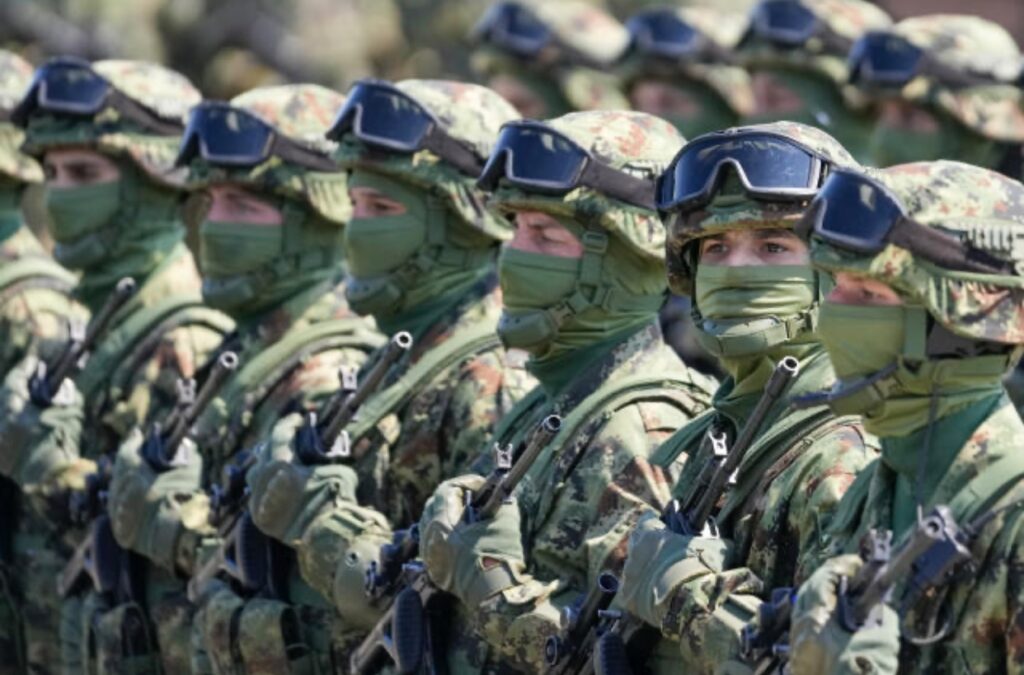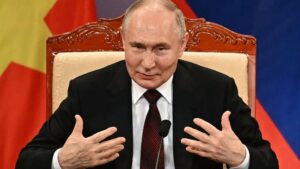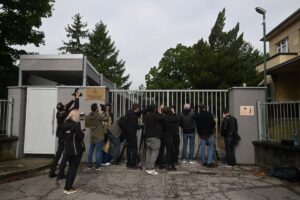Serbia has temporarily halted all exports of weapons for a period of 30 days following US sanctions on Serbia’s intelligence chief. This decision comes shortly after the United States imposed sanctions on the intelligence chief of the Balkan nation over alleged involvement in illegal arms transactions and other criminal activities.
The announcement was made by Serbia’s defense minister Miloš Vučević. He emphasized that the ban on arms exports is necessary to address the requirements of the Serbian military and enhance its combat readiness amid the ongoing crisis in the Balkan region.
Vučević clarified, “This does not imply that Serbia is preparing for or advocating war, but we are carefully assessing all security risks and challenges.”
Serbian President Aleksandar Vučić previously announced this action, citing “internal security” concerns within Serbia, particularly due to the simmering tensions with Kosovo, a former Serbian province whose declaration of independence in 2008 is not recognized by Belgrade.
Although Serbia is actively pursuing European Union membership, it has opted not to participate in Western sanctions against Russia. Recently, efforts by the United States and EU officials have intensified to facilitate an agreement between Serbia and Kosovo, as they fear potential new instabilities in Europe amidst the ongoing conflict in Ukraine.
Serbia’s controversial arms trade and U.S. accusations
Serbia has faced accusations of exporting weapons to countries under international embargoes, as well as to Russia and Ukraine. Vučević denied these reports, stating, “They persist in accusing us of selling to one side or the other.”
The U.S. accuses Serbia’s intelligence head, Aleksandar Vulin, of transnational organized crime, illegal drug operations, and public office misuse. The U.S. claims that Vulin has maintained a mutually beneficial relationship with Serbian arms dealer Slobodan Tesic. The United states accuses Slobodan of facilitating the unrestricted movement of illegal arms shipments across Serbian borders.
Serbia has pledged to investigate these allegations made by the U.S. The Organized Crime Prosecutor’s office plans to collect evidence from the U.S., as reported by state RTS television.
Vulin, a close associate of President Vučić, is known for his pro-Russia stance. He became Serbia’s spy chief last year after previously serving as both the defense and interior minister.
Belgrade’s unwavering relationship with Moscow
In August of the previous year, Vulin visited Moscow, making it a rare visit by a European state official. This visit highlighted Belgrade’s continued ties with Moscow, despite condemning the invasion of Ukraine. During the visit, Vulin expressed to Russian Foreign Minister Sergey Lavrov that Serbia was the only European state that had not imposed sanctions and had not participated in the anti-Russian sentiment.
President Vučić claimed U.S. sanctions on Vulin resulted from his stance on Russia, not allegations of crime. Vulin’s removal from office has been one of the demands made during weeks-long street protests in Serbia that arose following two mass shootings in early May.
Vulin has not yet responded to the sanctions; his party claims they’re an attack on Serbia by the U.S.
Thus far, the U.S. has imposed sanctions on several Balkan officials, alleging corruption and threats to regional stability. These measures are also in response to allegations of aiding Russia’s malign activities in Serbia and the broader region.



